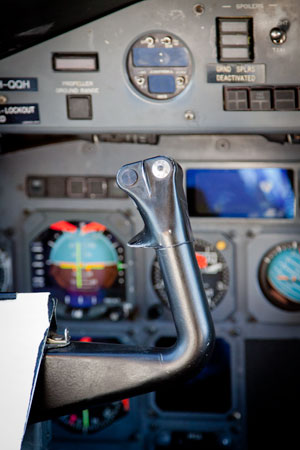The Aviation Colour Perception Standard (ACPS) has existed for almost a century and the reasoning behind it has changed little. At every conference, meeting, workshop and debate, the same assumptions and presumptions have been trotted out, tossed around and then put away unchanged into the same box.
It has never occurred to anyone that it might be interesting to see how a colour vision defective (CVD) pilot actually ‘performed the duties’, because, put simply, there weren’t any of them out there. How can you test the ‘real life performance’ of a CVD Pilot when you have practically driven them to extinction? Those who had ‘slipped the net’ by learning or ‘cheating’ the colour vision tests certainly weren’t going to declare themselves and volunteer for any kind of study. Once past the hurdle of these colour vision tests, many of these pilots largely remain undetected throughout their careers.
Therefore, the assumptions upon which the ACPS existed could never be properly tested. The ‘scientific’ projects that were conducted, including quite recent ones, were inherently flawed by virtue of the absence of the main ‘person of interest’, the CVD Pilot! He was ‘guilty’ of being ‘unsafe’ without the benefit of so much as an appearance at his ‘trial’.
Thanks to the developments in Australia over the last 25 years, this missing evidence can now be gathered and considered. We now have CVD pilots who have amassed tens of thousands of hours and decades of combined experience and who have achieved the highest levels within the aviation industry. Among these pilots are the most profoundly colour vision defective categories of ‘Deuteranope’ and ‘Protanope’, collectively known as ‘Dichromats’. They are Captains and First Officers in Airbuses, Boeings and turboprops. Those who follow the traditional thinking on the ACPS, reel with ‘shock and horror’ at this news and declare that Australia is seriously ‘out of step’ with the rest of the world. We however suggest that the rest of the world, just maybe, has got it wrong for the last 90 years! The present situation in Australia represents an unprecedented opportunity to revisit the ACPS with an entirely new and we would say ‘scientifically valid’ approach.
Regulators in countries such as New Zealand and the UK will come under pressure from their own nationals who have since obtained their licences and ratings in Australia, under training and testing regimes that are equally as high as anywhere in the world. New Zealand, in particular, as a destination within only three hours from Australia cannot ignore the fact that Australian registered airliners may be being flown into their airspace under the command of a Protanope or a Deuteranope.
Yet strangely enough, that same pilot would then be prohibited from flying a NZ registered Cessna at night! The fact that they would be discriminated against in such a profound way and would be deemed to pose a risk to ‘the safety of air navigation’ defies any common sense and logic.
Through the increased promotion and worldwide awareness of this website, we can begin to expose the discriminatory standards and offer an alternative perspective. Additionally, with Dr Arthur Pape’s continued hard work and presentations at Aviation Medical Conferences and the submission of articles to the various aviation medical journals, the Australian experience can come to be seen as a positive example that will stimulate a new way of thinking about the ACPS. The intention is to build the argument base and attract further support in order to facilitate, if the need arises, fight future legal challenges.
So what does the future hold? No one can tell, of course. There are many unknowns and it will not be an easy task. The regulatory authorities around the world and the ‘Promoters and Defenders’ of the ACPS hold the most crucial advantage: MONEY! The money they spend ‘defending’ is not their own. They also enjoy a thick legal firewall, which in some countries, gives them almost impenetrable protection from challenge. In this regard, Australia may well be unique in its legal institutions and in the opportunity it provides to its normal citizens to tackle the government bureaucracies and hold them to account. There is much we still need to learn and consider about the legal systems that exist in the many countries where CVD pilots may wish to seek redress. That is what we aim to do.
If this website has inspired you to make a start to effect change, it is vital that you lend support to the best of your ability, preferably through joining as a member or donating to the fighting fund. There is no doubt that we have a massive challenge ahead of us, but collectively through CVDPA we can make a difference!

